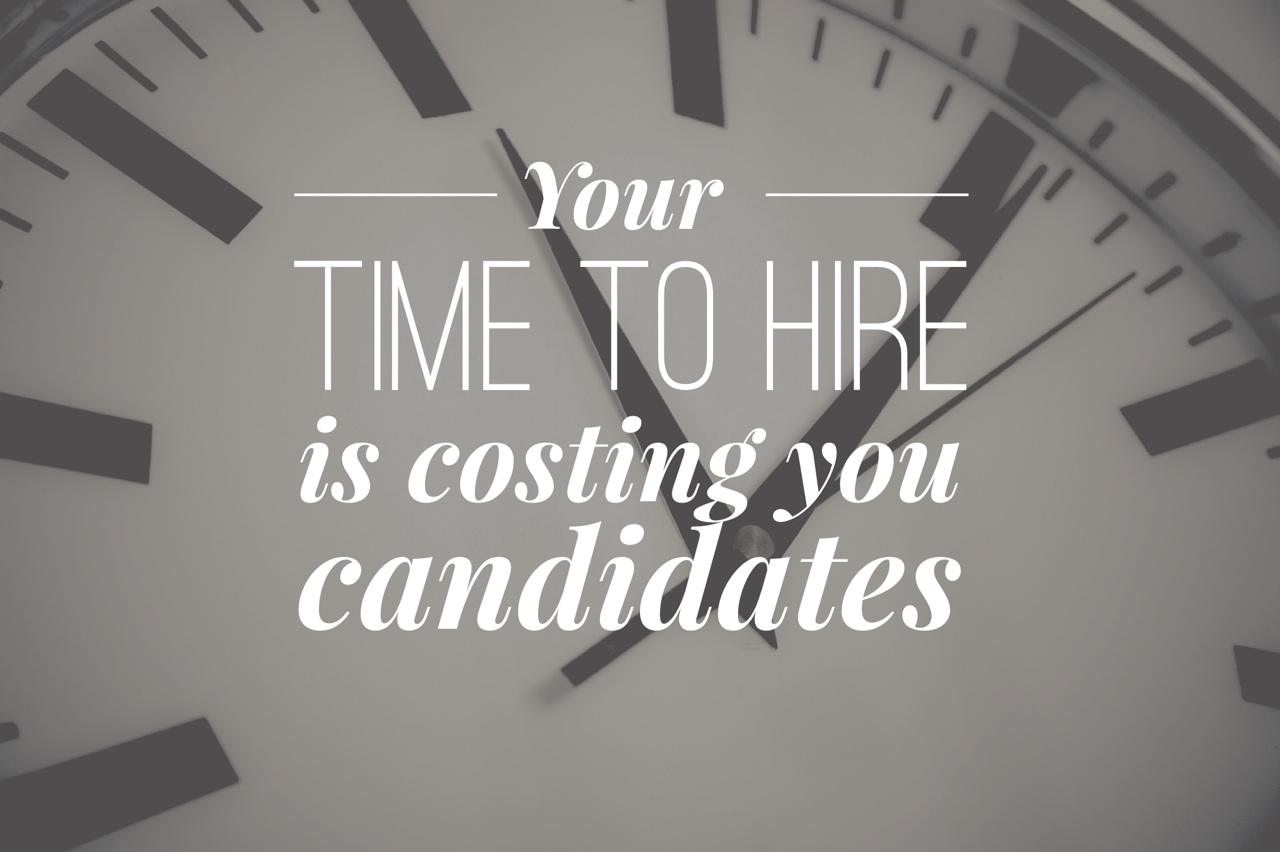That is, you have only 1-3 days after an interview to make an offer to your top choice candidate, or they may have already moved on and accepted another role.
The skills shortage is putting tremendous pressure on employers to find the right candidates for their positions, and candidates are benefitting. Top candidates may be interviewing with several companies at the same time, and may receive several competitive offers in a short period of time. As such, they are being taken off the market much faster than in years past.
However, Expectations also found that working with a direct hire agency bought employers 50-65% more time. This may sound like a (no so) clever rouse coming from an agency, but the truth is that agencies can act as an intermediary to buy you more time.
For instance, agencies stay on top of where else your candidates are interviewing, how far along in the process they are, and what other offers they’ve received. They can also help manage expectations so candidates know what to expect from you, and when, and so you know what kind of offers candidates expect from you.
Direct hire agencies keep the whole process running smoothly, which is beneficial for all parties involved. They help you hire your first choice candidates, so you don’t lose top talent and have to spend more time screening and interviewing candidates.
They help candidates negotiate the timing and scope of offers, so they aren’t hasty to accept an offer before you’ve submitted yours. And, of course, all of this helps agencies lessen the chance of losing the candidate they worked so hard to find for you.
Expectations found that the majority of employers make a decision 10-14 days after the initial interview, which causes 2/3 of them to lose their top and fall-back candidates. Don’t let this happen to you!
The tide has changed, and it’s a candidate-driven market now. Employers need to adapt by decreasing time to hire in any way possible.
For some tips, see our previous post on reducing time to fill, but try to focus on making your interview process more efficient. This includes scheduling interviews with your top candidates in a timely manner, collecting feedback on interviews promptly after they end, and making offers as soon as you’ve found a great candidate.
How long does it take you to extend an offer after an interview? What are you doing to reduce your time to hire?

.png?width=801&height=222&name=BoJo%20-%20A%20R.com%20Co%20Logo%20(1).png)
